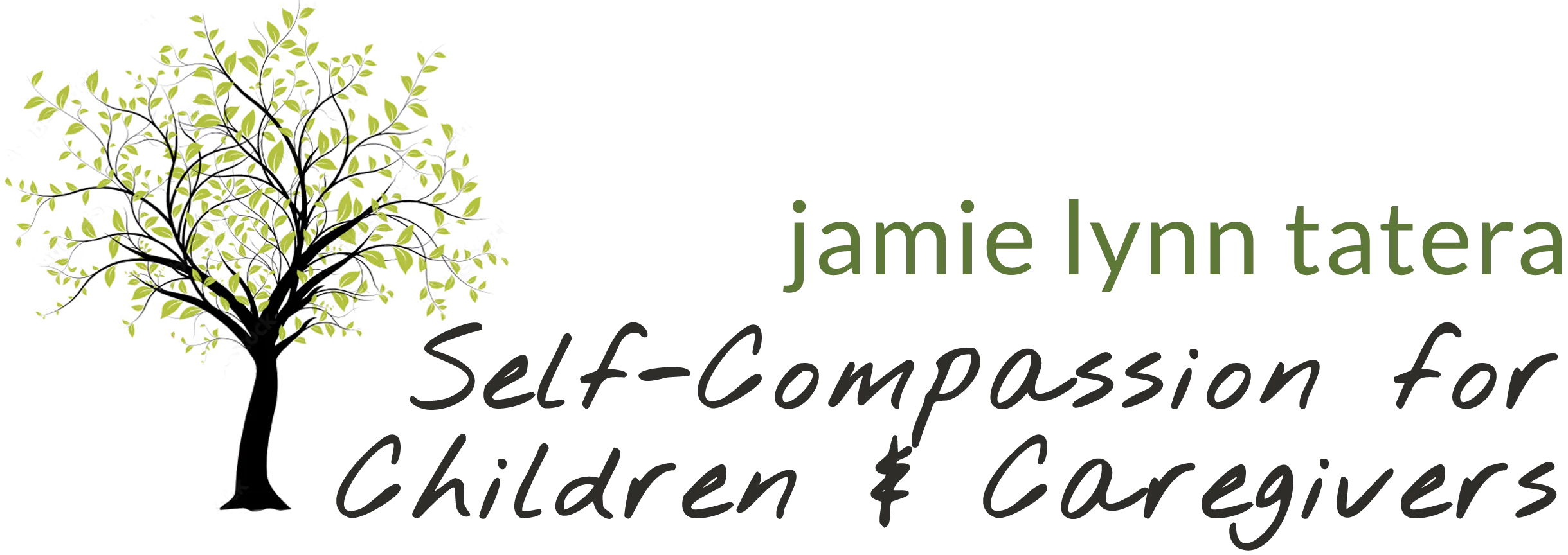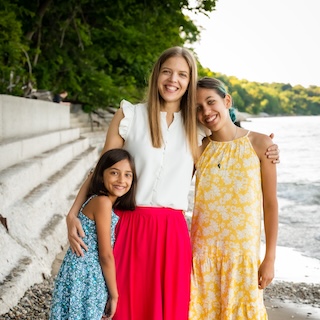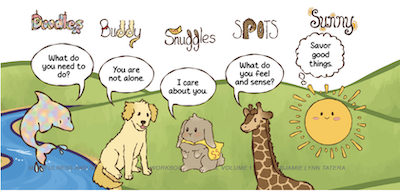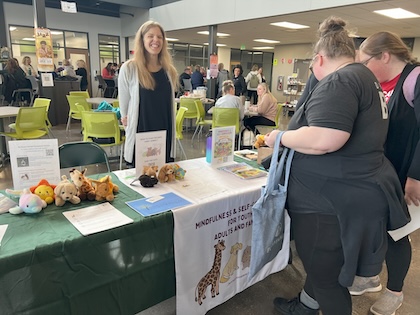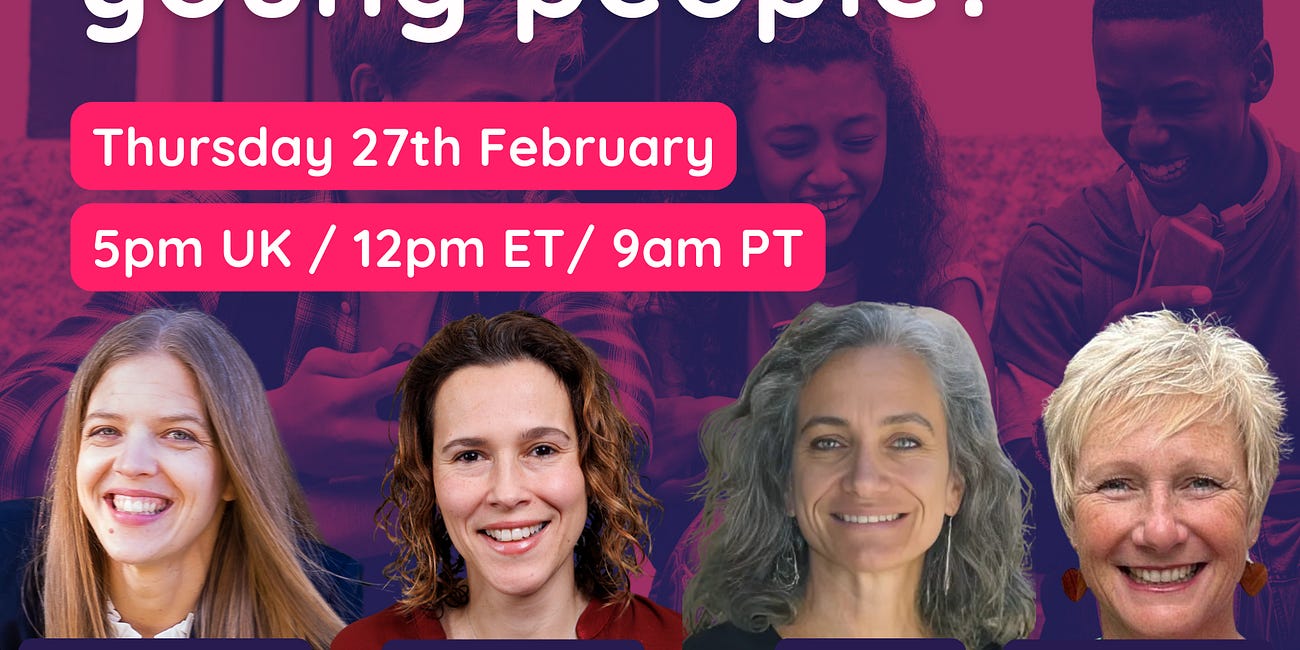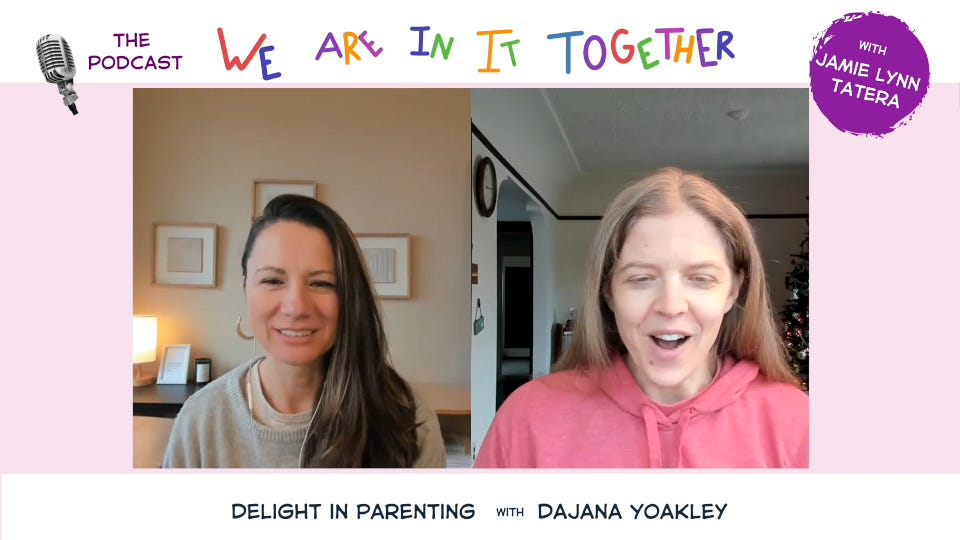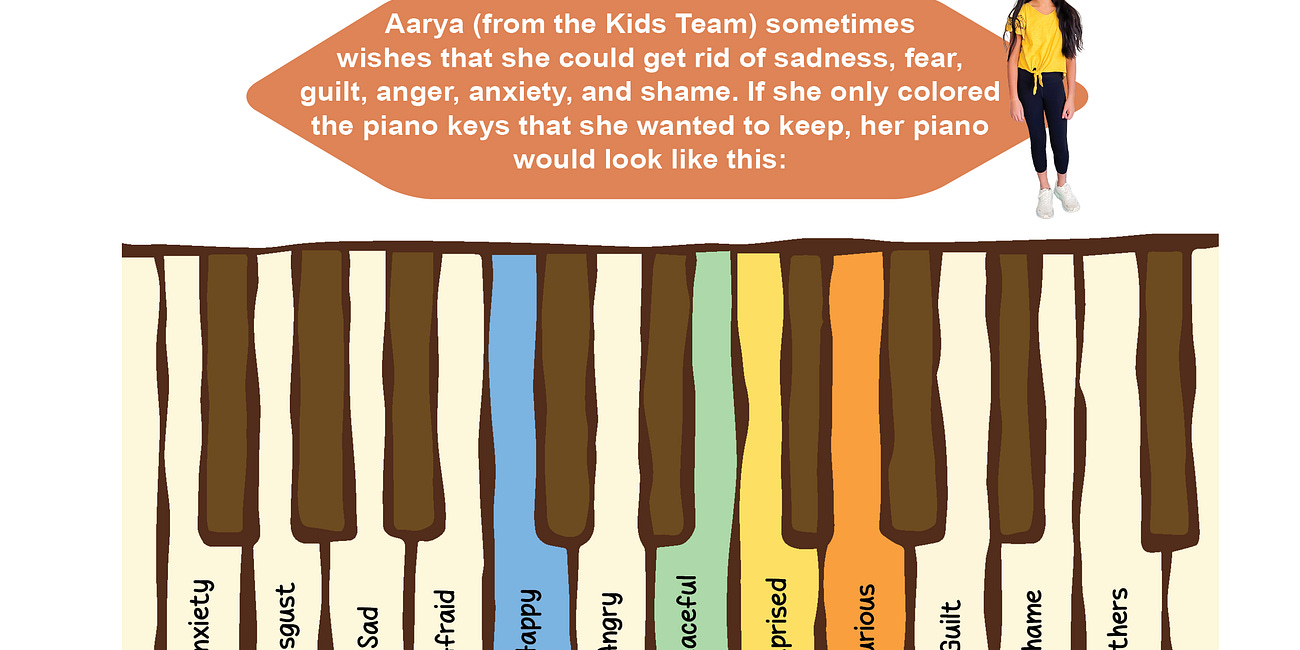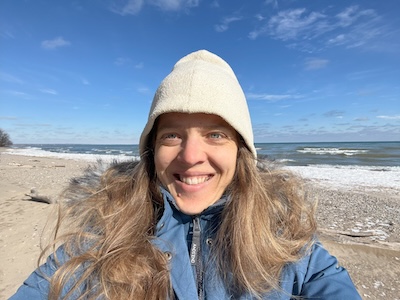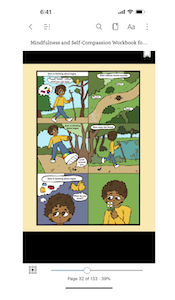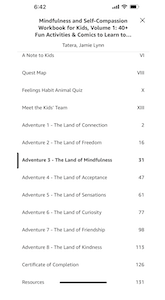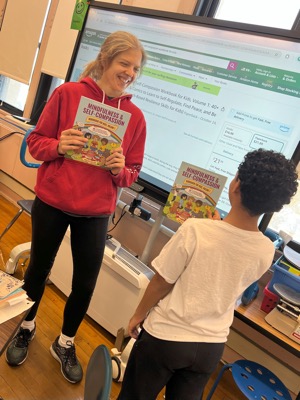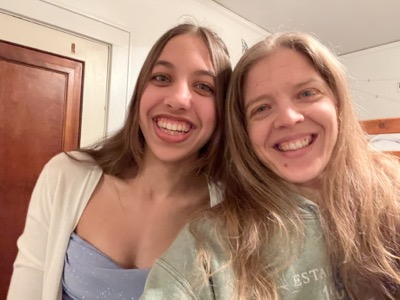Mindfulness as a Resource
Sometimes we really need something to pull us back to the Present Moment
Hello Friends,
Have any of you found yourself flooded with difficult thoughts and feelings lately? If so, you are not alone. Many of us are going through hard times, and self-compassion is a resource that can hold us as we go through it.
When I’m struggling, often I need the kindness aspect of self-compassion, which I like to call “Snuggles” the bunny. Additionally, I need connection, which I call the “Buddy” habit. Connection for me might look like talking to a friend or spending time in nature. Moving my body (the “Doodles” Habit) and noticing small ways I have well-being (“Sunny”) are two other helpful habits. But today, I’m going to highlight the resource of Mindfulness, which I refer to as “Spots.”
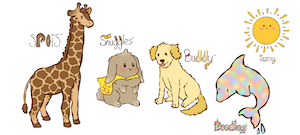
Note: These are the 5 resilience habit animals from my Workbooks for Kids and my Parent-Child class.
What is Mindfulness (aka the “Spots Habit”)?
How do we practice Mindfulness in the moment?
Here I’d like to share a playful comic from the Mindfulness and Self-Compassion Workbook for Kids, Volume 1. Sam is a character that often gets lost in thoughts (can anyone relate?), and one of Sam’s favorite things to think about is Legos. Notice how Sam is invited again and again to focus on the present moment.
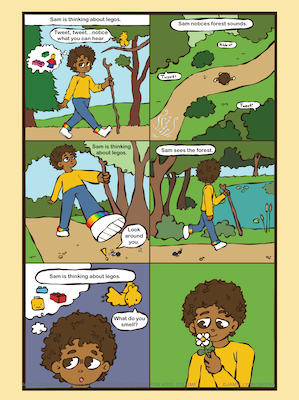
You can try this next time you go for a walk. Notice when your mind wanders, and then bring yourself back to your senses!
Taking a class can help both you and your child grow mindfulness and self-compassion skills. Join me in April for our next Parent-Child Mindfulness and Self-Compassion class!
Join me at a Mindfulness & Self-Compassion gathering
- Feel better in our own skin.
- Show up in better ways for our kids.
- Develop the skills and insights to effectively help our kids grow these skills.
Please share with me in the comments how you like to practice mindfulness in daily life. And as always, thank you for being on this journey with me.
Warmly,
Jamie Lynn
